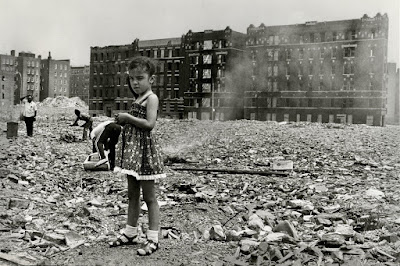At the post, A Comment on the Economic Destruction Ahead: How Bad Will It Get?, there are a number of commenters that miss the point.
This comment, in particular, reflects the problem:
I hope you don't mind some friendly pushback. My thinking is more towards Casey's than to yours. It is influenced by a book I read about the effect of the Great Depression in Canada. One of the things that has stuck with me is that even though a large part of the population were adversely affected by it, those who were able to remain employed did very well due to falling prices. Their wages remained relatively stable, but their standard of living went up because their wages went further. These were not the "certain style of hustler" that you referenced. Could the coming depression be similar....the non-hustlers who do remain employed will live comfortably, while a large-ish segment of the population who lose jobs will suffer?
Note this commenter brings up the Great Depression but that was mostly a business cycle downturn with further government intervention in the employment market and expanded government spending.
This is about as far as you can get from what I am discussing as you can get.
In my post, I make clear:
When a society moves toward greater central planning, and the United States is doing so, the general standard of living tends to fall and wealth can be destroyed.
Central bank interference is a form of central planning but it is very limited, what I am referencing is the other accompanying potential central planning changes. For example, in the EPJ Daily Alert, I am warning of potential price controls at some point next year--regardless of who is elected.
That is a move in the direction of central planning that can be extremely destructive.
I did not lead without reason the post with a picture of destruction in the Bronx because of rent controls.
Nobel Prize-winning socialist economist Gunnar Myrdal stated, “Rent control has in certain Western countries constituted, maybe, the worst example of poor planning by governments lacking courage and vision.” His fellow Swedish economist (and socialist) Assar Lindbeck asserted, “In many cases rent control appears to be the most efficient technique presently known to destroy a city—except for bombing." (via Walter Block) This is wealth destruction.
Aside from Casey's questionable claim that a business cycle downturn is only about wealth transfer (Misallocated wealth during the boom can certainly be destroyed). A central planning advance, which is what is occurring in the United States at the present time can be extremely destructive.
To put an overlay of the Great Depression to the current period is a very dangerous error. You have to understand the theory behind what occurred in the past and how it may be the same or different this time. The greatest error I see in the investment world is when macro forecasts are being made by overlaying a past period on the present and forecast out without understanding the fundamental drivers and how they might be the same or different.
The current situation is significantly different than the Great Depression. It could be much worse with much more wealth destruction.
-RW

The fate of the Roman Empire seems to be a reasonable example of what we might expect. Once it collapsed, decentralization was the rule of the day for about 1,000 years. This should give RW some encouragement about the future.
ReplyDelete